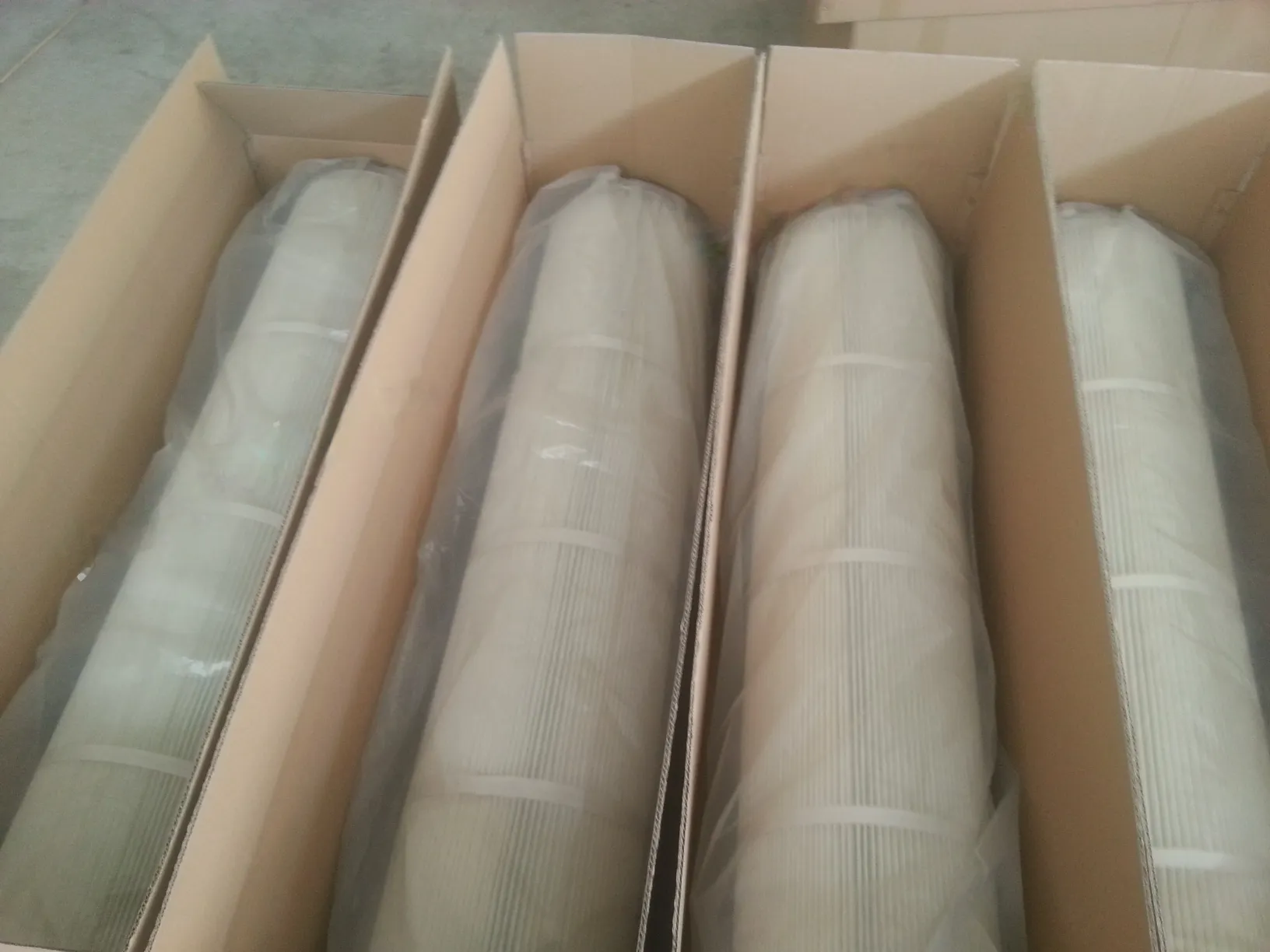 Tel:
+8615930870079
Tel:
+8615930870079
dec. . 12, 2024 11:41 Back to list
cartridge dust collector filter
Understanding Cartridge Dust Collector Filters Enhancing Air Quality in Industrial Applications
Air quality is a pressing concern in various industrial settings, where dust and particulate matter can pose serious health risks to workers and lead to reduced equipment efficiency. One of the most effective solutions to manage airborne contaminants is the use of cartridge dust collector filters. These filters are designed to capture a vast array of particles, improving air quality and ensuring compliance with environmental regulations.
What is a Cartridge Dust Collector Filter?
Cartridge dust collector filters are specialized filtration systems utilized in dust collection applications. They consist of a cylindrical cartridge that contains filter media, which traps particles while allowing clean air to pass through. These cartridges are typically made from synthetic or natural fibers, with pleated designs that increase the surface area for dust accumulation. This design enables them to effectively capture fine particles, often down to the micron level, making them suitable for various industries, including woodworking, metalworking, pharmaceuticals, and food processing.
Advantages of Cartridge Dust Collector Filters
1. High Efficiency One of the primary advantages of cartridge filters is their high filtration efficiency. They can capture particles as small as 0.5 microns, which is essential in applications where even minute dust particles can lead to product contamination or health hazards.
2. Space-Saving Design Cartridge filters are compact compared to traditional baghouses. Their vertical arrangement and pleated design allow for efficient dust collection without requiring a large footprint, making them ideal for facilities with limited space.
3. Easy Maintenance Cartridge filters are easier to maintain and replace than traditional filter systems. Many modern designs feature quick-release mechanisms that allow for rapid filter changeouts, minimizing downtime and maintenance costs.
4. Versatility These filters can be used in various applications, from heavy-duty industrial processes to lighter manufacturing jobs. Their adaptability to different conditions and contaminant types makes them a go-to option for many businesses.
5. Cost-Effectiveness While the upfront cost of cartridge dust collectors may be higher than some alternatives, their long-term benefits often lead to significant cost savings. Reduced energy consumption, lower maintenance needs, and prolonged equipment life all contribute to a favorable return on investment.
Applications of Cartridge Dust Collector Filters
Cartridge dust collector filters are widely used across various sectors
cartridge dust collector filter

- Woodworking In woodworking facilities, sawdust and wood shavings can create hazardous breathing conditions. Cartridge filters efficiently capture these particles, protecting workers’ health and maintaining compliance with OSHA regulations.
- Metalworking Activities such as grinding, cutting, and polishing can generate fine metal dust that poses health risks. Cartridge collectors effectively trap this dust, providing a cleaner environment and reducing the risk of respiratory illnesses.
- Pharmaceuticals The pharmaceutical industry requires stringent control of airborne contaminants. Cartridge dust collectors play a crucial role in maintaining air quality, ensuring that products are not contaminated by particulates.
- Food Processing In food processing plants, maintaining a clean environment is essential for product safety. Cartridge filters ensure that the air is free from dust and debris, safeguarding the integrity of the food products.
Choosing the Right Cartridge Dust Collector Filter
When selecting a cartridge dust collector filter, several factors should be considered
1. Particle Size Understanding the type and size of particles that need to be filtered is crucial. Efficient filters will vary based on the application requirements. 2. Airflow Capacity It’s essential to calculate the required airflow rate to ensure that the selected filter can handle the volume of air generated in the application.
3. Filter Material Different filter media are available, each suited for specific applications. Synthetic materials may be more effective for certain types of dust, while natural fibers may be better for others.
4. Maintenance Needs Consider how often filters will need to be replaced and the ease of maintenance. Filters that are challenging to access may increase operational downtime.
Conclusion
Cartridge dust collector filters are vital components in maintaining air quality in industrial settings. Their efficiency, compact design, and ease of maintenance make them an excellent choice for various applications. As industries continue to prioritize worker safety and environmental compliance, investing in high-quality cartridge dust collectors will be a significant step towards fostering healthier workplaces and promoting sustainable practices. By selecting the right filters for their specific needs, companies can ensure cleaner air, enhance operational efficiency, and comply with regulatory requirements.
-
Types and Applications of Air Filtration CartridgesNewsJul.28,2025
-
The Role of Gas Turbine FiltersNewsJul.28,2025
-
Mastering Air Filter Cartridge UseNewsJul.28,2025
-
Advanced Turbine Filters for Modern Gas TurbinesNewsJul.28,2025
-
Cellulose Air Filter Cartridge Advantages in Dust FiltrationNewsJul.28,2025
-
Cellulose Filters for Air Particle ReductionNewsJul.28,2025

 Email:
Email:





